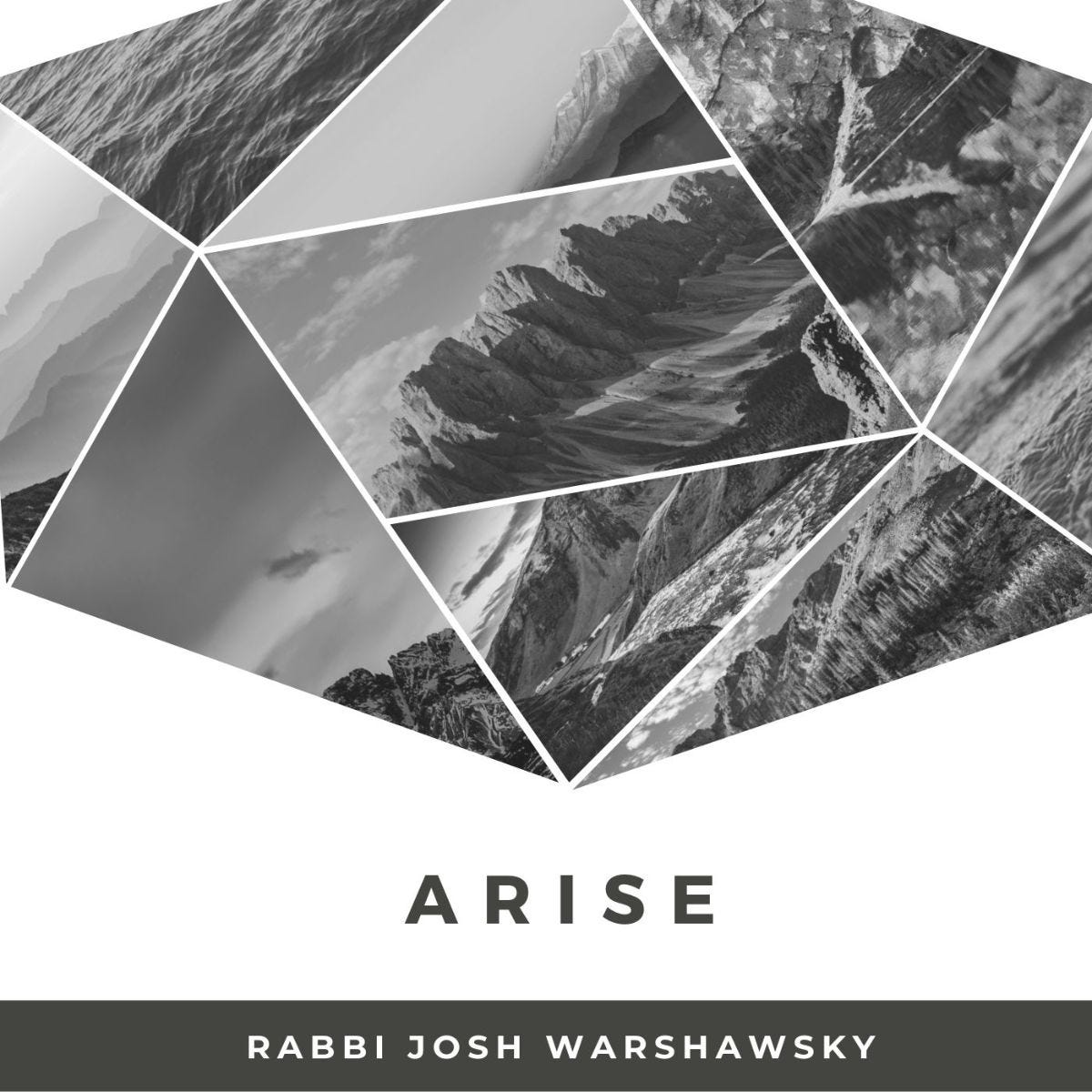The Vision: Vayeishev 5783
Vayeishev 5783
Join us this year for an exploration of the weekly Torah portion and the story of the Jewish people in connection and conversation with my musical compositions. Through this journey, I hope we find deeper meaning in these melodies, stronger ties to our tradition, and true relevance to the work we are doing in the world today. I’m not exactly sure where this journey will lead, though I hope it will lead to new conversations, new ideas, new relationships, new inspiration, and new music. I’d love to hear your thoughts along the way.

Arise - Rabbi Josh Warshawsky
The Vision.
Throughout our history, there have been multiple occasions where Jewish leaders have had to entirely reinvent Judaism in order to allow it to outlast their generation. Leaving Egypt, the Babylonian exiles, the destruction of the Second Temple and recreation of Judaism as a prayer-based religion as opposed to a sacrificial cult, Jews leaving Spain, leaving Europe, and more. These paradigm shifts did not happen easily nor did they occur on their own. They mostly happened out of necessity and as a very last resort. In each of these instances, Judaism could not have survived without the courageous minority who crafted a vision for what could be and how to get there. This week I learned that our ancestor Joseph was one of those visionaries. We often read Joseph’s dreams as problematic. Why did he feel the need to egotistically share them with his brothers and his father? What good could have come from that? Rav Joseph Soloveitchik has a different read. In the first dream, the Torah says,
וְהִנֵּה אֲנַחְנוּ מְאַלְּמִים אֲלֻמִּים בְּתוֹךְ הַשָּׂדֶה וְהִנֵּה קָמָה אֲלֻמָּתִי וְגַם־נִצָּבָה וְהִנֵּה תְסֻבֶּינָה אֲלֻמֹּתֵיכֶם וַתִּשְׁתַּחֲוֶיןָ לַאֲלֻמָּתִי׃
There we were binding sheaves of wheat in the field, when suddenly my sheaf stood up and remained upright; then your sheaves gathered around and bowed low to my sheaf.” (Bereishit 37:7)
Rav Soloveitchik suspends his disbelief that this is a dream and notices something strange: Why are the brothers binding sheaves of wheat? They are shepherds! They should be minding their flocks! This, he says, is the crux of the rift between Joseph and his brothers. Joseph had in his mind a paradigmatic shift for the family. The family lore was passed down from generation to generation from Abraham’s covenant with God that the people of Israel would become strangers in a strange land and that a terrible exile lay in their future. So Joseph therefore sought to prepare for that scenario. His brothers, however, believed that this profession of shepherding sheep would succeed forever, and laughed and ridiculed his dreams and vision.
Even though no person can truly know what lies ahead, Joseph could see the writing on the wall. And what ended up happening? Joseph was able to prepare a whole nation (Egypt) to receive a family of strangers and welcome them into his new land. They learned from welcoming how to share, how to be kind, how to love. This lasted until the residents and leaders of the land forgot the kindnesses done to them by these strangers in their midst and turned to hate.
I wrote Arise as a plea to myself, to communities, to our country, to remember how to welcome the stranger. To learn through action how to love and be loved. It feels to me like we are at another moment of paradigmatic shift. We must choose the path that leads to more love, more hope, more justice, more kindness. It might not seem popular at times and we might be ridiculed and laughed at as we dream of a better world, but if we learn from our dreaming ancestor Joseph and share the vision, we can make it so.
Shavua Tov,
Josh


